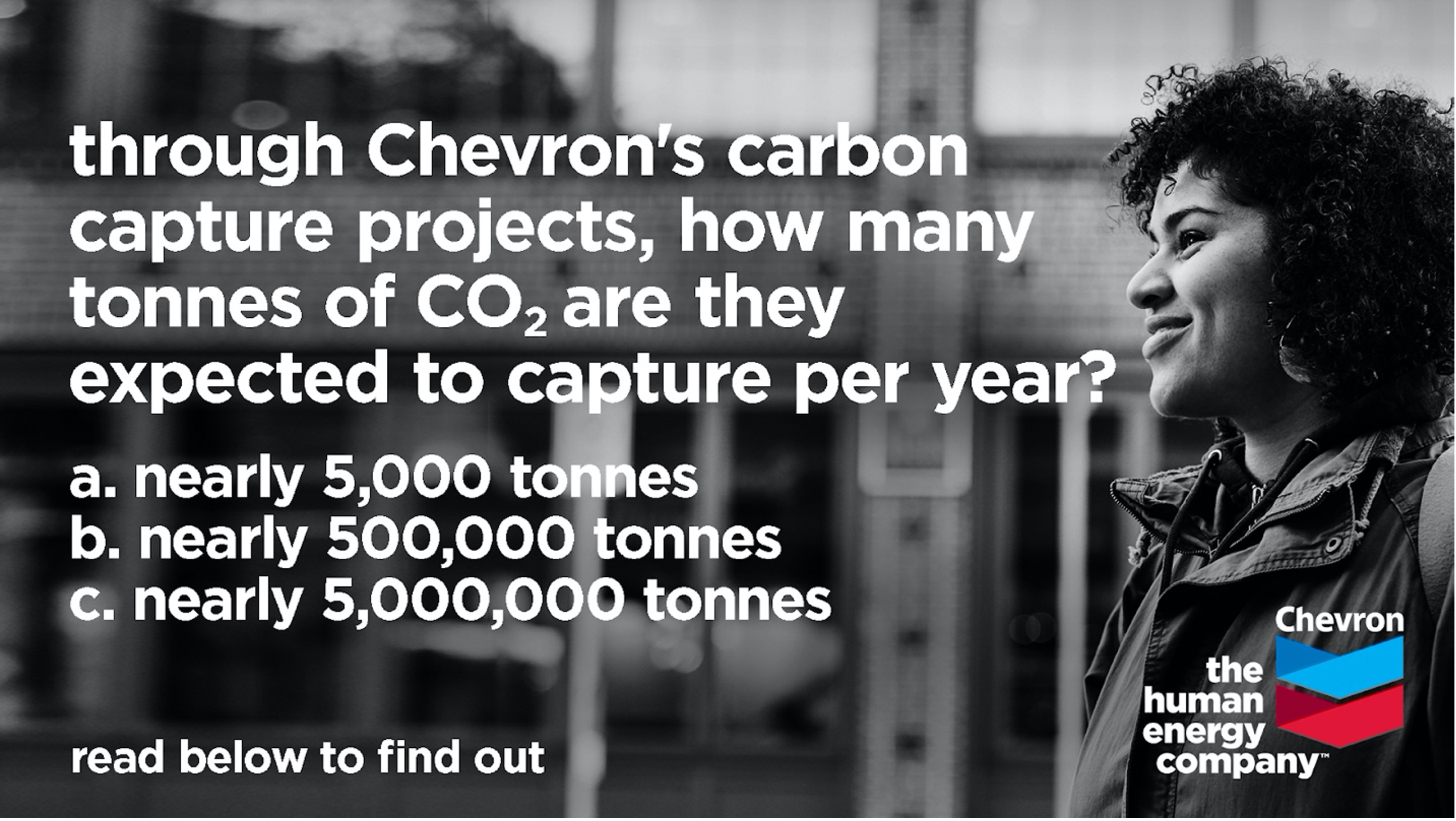| | | | | | | Presented By Chevron | | | | Generate | | By Ben Geman and Andrew Freedman ·May 25, 2021 | | Welcome back, readers! Today's Smart Brevity count is 1,212 words, 4.6 minutes. 🚨Situational awareness: Senate Democrats plan to continue infrastructure talks with Republicans through the week after Memorial Day recess, then forge ahead on their own if there's no deal, Axios' Alayna Treene reports. - Why it matters: Democrats are pushing for major new spending on low-carbon energy initiatives, such as electric vehicle charging and expanded consumer purchase incentives.
🎶 And on this date in 1987, The Cure released "Kiss me, Kiss me, Kiss me," which provides today's intro tune... | | | | | | 1 big thing: Climate resilience gets a hurricane season boost |  | | | Illustration: Annelise Capossela/Axios | | | | The Biden administration is doubling funding for a FEMA program that directs money to states and local communities to improve their capacity to withstand extreme weather events. Why it matters: As the effects of climate change become more apparent and consequential, there's a growing urgency to prepare society for an onslaught of supercharged weather, including stronger, wetter hurricanes. - By focusing on resilience on the day of President Joe Biden's hurricane briefing at FEMA headquarters Monday, the White House cemented resilience's high billing on the list of climate policy buzzwords.
Driving the news: The $1 billion in funding announced Monday will be routed through FEMA's Building Resilient Infrastructure Communities (BRIC) program, doubling its spending levels compared to last year, the White House said. Threat level: Last year was the busiest Atlantic hurricane season on record, with 30 named storms, a dozen of which struck the U.S. Many people in hard-hit states, such as Louisiana, are still cleaning up after multiple hurricane strikes last year. - The U.S. saw about $44 billion in economic losses from tropical cyclones in 2020, according to Steve Bowen, the head of disaster insight at Aon.
- The 2021 season is expected to be another unusually active one.
Be smart: Resilience falls into the predisaster phase of climate spending, which is aimed at limiting harm to people and property if and when a storm strikes. - Climate resilience projects might include grants to install a sturdier roof on a building or shore up a crumbling sea wall.
- "We all know that these storms are coming. And we're going to be prepared; we have to be ready," Biden said at FEMA headquarters.
State of play: The White House hopes to add a lot more money to the pipeline of resilience spending beyond the $1 billion. - Biden's late March infrastructure proposal calls for "$50 billion in dedicated resilience investments," the White House said.
- It's also an area of climate policy attracting some bipartisan support in Congress, as it doesn't involve implementing potentially expensive solutions to limit greenhouse gas emissions.
The intrigue: The Biden administration could have spent even more on the BRIC program this year, but chose instead to double the funding level from 2020, according to the New York Times. Yes, but: Resilience spending is a stopgap measure at best. Absent policies that quickly cut greenhouse gas emissions, global warming will worsen extreme weather events in the decades ahead beyond what's already inevitable. |     | | | | | | 2. New NASA satellite missions poised to expand climate info |  | | | NASA's Terra satellite captured this thermal imaging view of Hurricane Maria in 2017. Courtesy of NASA. | | | | The White House is providing fresh details of a satellite program that administration officials call poised to reveal vital information about climate change and extreme weather events. Why it matters: The Earth System Observatory consists of at least five satellites launched through 2029 that will enhance, or in some cases revolutionize, the capabilities of NASA's existing fleet of Earth-observing satellites. Details: NASA administrator Bill Nelson tells Axios the satellite constellation will look at everything from aerosols — tiny atmospheric particles that are a major source of uncertainty in climate models — to sea-level rise. - He said these missions will observe the changes in forests and ice sheets and shifts in water resources and geological phenomena.
- "All of these will create a 3D view of our Earth from the atmosphere to the bedrock," Nelson said.
The big picture: Nelson comes to the NASA job having served in both houses of Congress and, while a lawmaker, flying aboard the Space Shuttle Columbia in 1986. While orbiting the globe, he said he felt what astronauts call the "overview effect," a newly deepened appreciation for the Earth's uniqueness and fragility. - "Coming across Brazil I could see with the naked eye, the color differential in the upper Amazon region, which is where they were destroying the rainforest — and then I could look in the same window to the east, and see all of the additional silt that was coming out of the Amazon into the Atlantic," Nelson said.
Read the whole story |     | | | | | | 3. Exxon makes another move ahead of proxy fight | | Exxon is pledging more board additions ahead of a showdown with activist investors pressing for more aggressive moves on climate change and capital discipline on oil development. Why it matters: The move comes just ahead of Wednesday's annual meeting, when shareholders will vote on whether to approve four board members nominated by the investment group Engine No. 1. Exxon is urging shareholders to vote against the slate. Driving the news: The company said that over the next 12 months it would add two new members, "one with energy industry experience and one with climate experience." - The May 23 shareholder communication was disclosed in this filing Monday.
- The letter, which also touts recent board additions, says the company's capital allocation strategies, cost cuts and expanded climate efforts mean it's "positioned for success."
The other side: "If ExxonMobil's Board is sincere in its desire to add more relevant experience, then it can wait to see what the outcome of this election is," Engine No. 1 said in a statement. What they're saying: Andrew Logan, of the sustainable investment advocacy group Ceres, tells Reuters that Exxon's move is aimed at swaying major investors including BlackRock and Vanguard ahead of the vote. Go deeper: The showdown over Exxon's climate future is here |     | | | | | | A message from Chevron | | Chevron believes in actions, not just words | | |  | | | | We believe the future of energy is lower carbon. That's why we're tying our executives' compensation to lowering the carbon emissions intensity of our operations. In fact, through our carbon capture projects, we're expected to capture nearly 5 million tonnes of CO2 per year. Learn more. | | | | | | 4. Fighting global warming means reshaping finance |  | | | Illustration: Aïda Amer/Axios | | | | The world's growing efforts to limit climate change will have far-reaching impacts for financial markets, and the groundwork for that push is being laid right now, Axios' Dion Rabouin reports with Ben. Why it matters: As more governments implement climate change regulations, trillions of dollars are going to flow towards clean energy and climate-friendly technologies, affecting significant portions of the global financial industry. - A related trend: Governments and the private sector are increasingly crafting policies to force better disclosure of how climate change creates risks for the financial sector.
What we're hearing: "One of the things that we're seeing is that the financial industry is organizing itself for net-zero [carbon emissions by 2050]," former Bank of England leader Mark Carney told Axios. Catch up fast: Carney the United Nations special envoy on climate finance and an adviser on these topics to the government of the United Kingdom, which hosts a critical U.N. summit late this year in Glasgow, Scotland. - Carney's a key organizer of the recently launched Glasgow Financial Alliance for Net Zero, a wide-ranging network of banks, asset managers, investors and insurers.
The big picture: "What we are looking to do is make sure that the plumbing of the financial system is ready and supportive of this transition," Carney said. That means growing investment in clean technology, but also financial sector policies that press polluting companies they finance and invest in to get cleaner. - "We want a system where it makes sense to invest in or lend to a company that has high emissions today but is investing in order to get those emissions down," Carney added.
Go deeper |     | | | | | | 5. Two EV notes: Lordstown and Biden's battery plans | | Startups: "Electric-truck startup Lordstown Motors Corp. said Monday it faces higher-than-expected costs, is cutting its 2021 production forecast by at least 50% and needs to raise more capital, as it tries to launch its electric pickup truck later this year." (Wall Street Journal) Policy: "U.S. President Joe Biden will rely on ally countries to supply the bulk of the metals needed to build electric vehicles and focus on processing them domestically into battery parts, part of a strategy designed to placate environmentalists, two administration officials with direct knowledge told Reuters." (Reuters) |     | | | | | | 6. Amazon's latest climate change battle | | Via NBC News..."An internal petition signed by 640 Amazon tech and corporate employees is asking the company to raise its emissions goals and address the disproportionate environmental harms its logistics empire leaves on Black, Latino, Indigenous and immigrant neighborhoods where its warehouses are often concentrated." Go deeper |     | | | | | | A message from Chevron | | Chevron believes in actions, not just words | | |  | | | | We believe the future of energy is lower carbon. That's why we're tying our executives' compensation to lowering the carbon emissions intensity of our operations. In fact, through our carbon capture projects, we're expected to capture nearly 5 million tonnes of CO2 per year. Learn more. | | | | | | Axios thanks our partners for supporting our newsletters.
Sponsorship has no influence on editorial content. Axios, 3100 Clarendon Blvd, Suite 1300, Arlington VA 22201 | | | You received this email because you signed up for newsletters from Axios.
Change your preferences or unsubscribe here. | | | Was this email forwarded to you?
Sign up now to get Axios in your inbox. | | | | Follow Axios on social media:    | | | | | |







No comments:
Post a Comment